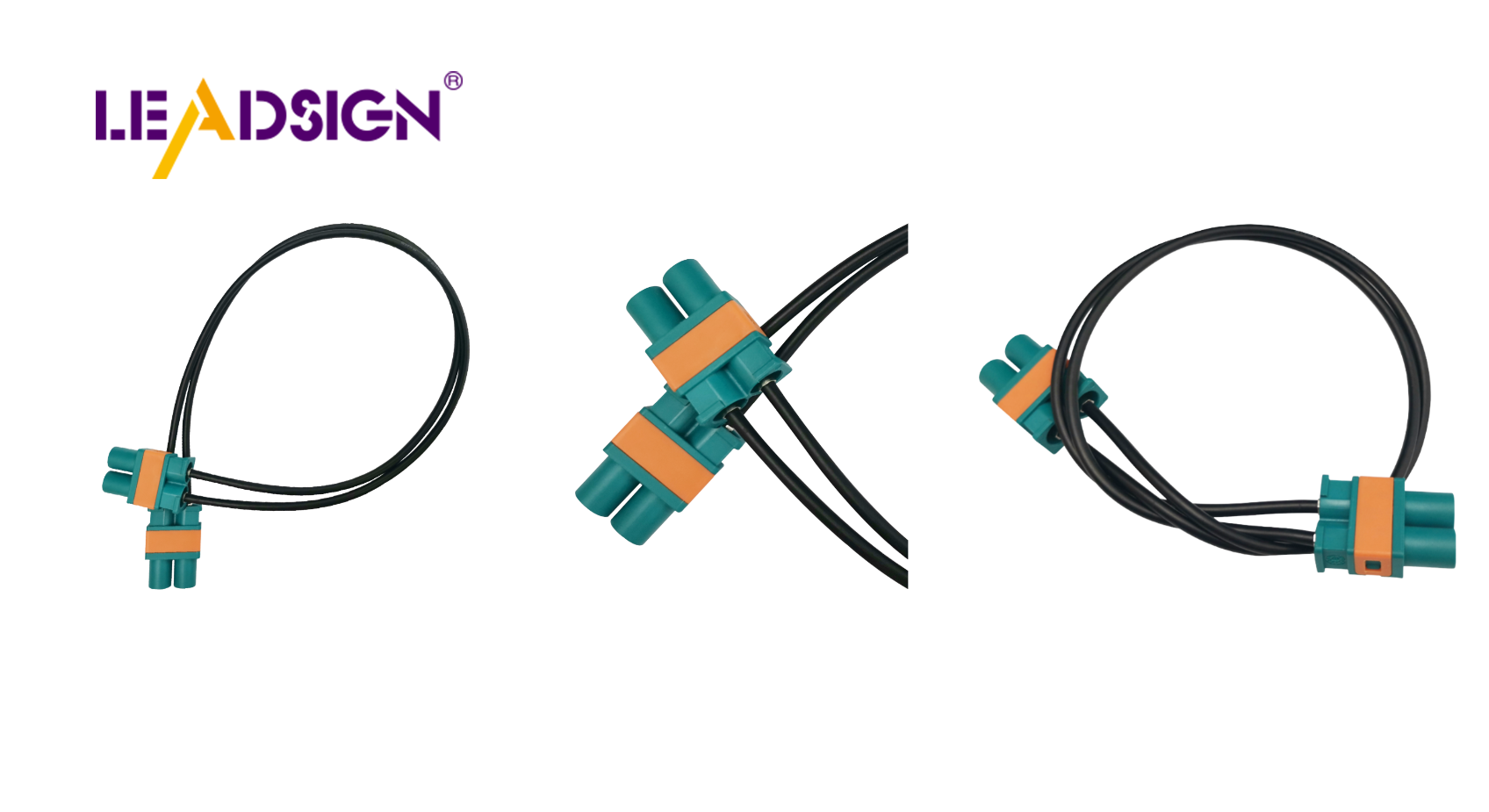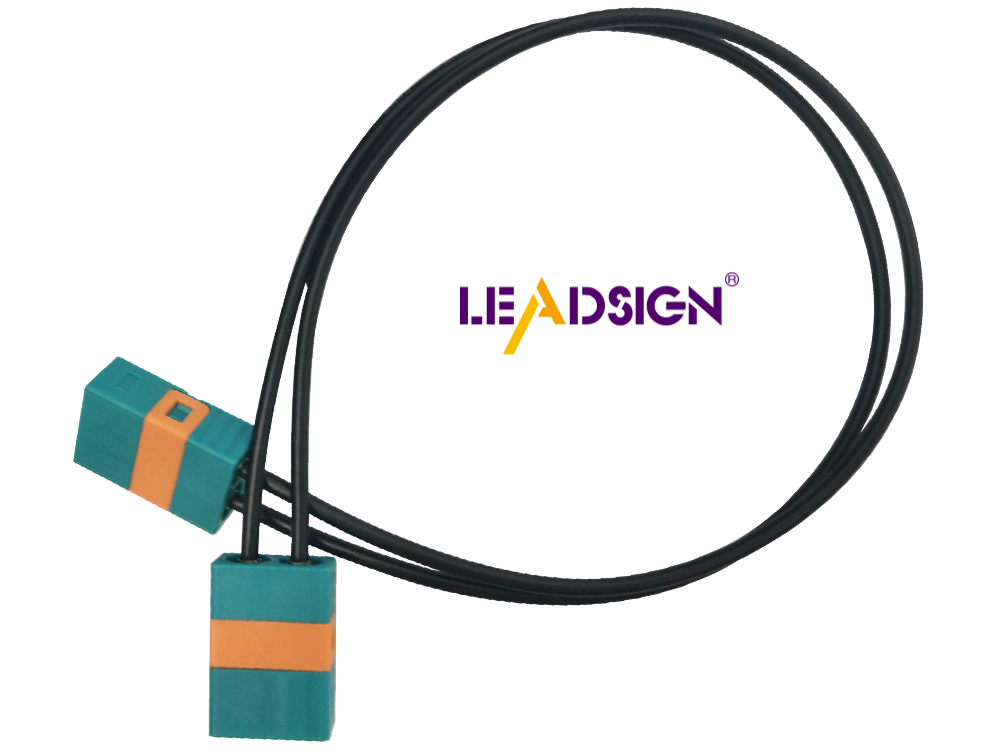Comparing Car Connector Plug Types for Automotive Efficiency

Choosing the right car connector plug is crucial for enhancing your vehicle's efficiency. The appropriate plug can improve your car's performance and longevity. A quality car connector plug ensures optimal power flow and prevents electrical issues. It also facilitates seamless operation among various car systems. Selecting the right car connector plug means your vehicle will not only last longer but also perform better. This decision impacts your car's current functionality and overall driving experience.
Key Takeaways
Choosing the right car connector plug is essential for improving your vehicle's performance and longevity.
Understand the three main types of car connector plugs: Blade, Pin, and Cavity, each serving unique functions in automotive systems.
Consider your car's power needs when selecting a plug to prevent overheating and ensure optimal performance.
Evaluate weather conditions your vehicle faces; opt for waterproof and heatproof plugs for durability.
Ensure the plug fits your car's specific parts to guarantee seamless operation and prevent electrical issues.
Regularly check your car plugs during maintenance to identify wear and replace them as needed for safety.
Making informed choices about car connector plugs leads to a smoother driving experience and enhances overall vehicle efficiency.
Overview of Car Connector Plugs
Car connector plugs are important for your car's systems. They help electrical signals and power move smoothly between parts. Without them, your car's systems might not work well together. This could cause problems or even make systems fail. Knowing about car connector plugs helps you see why they are key for your car's efficiency.
Role in Automotive Systems
In cars, connector plugs connect electrical parts. They join parts like the engine, lights, and music systems. These plugs send signals and power so everything works right. For example, when you turn on headlights, the plug sends the signal to the lights. This smooth working is important for your car's performance and safety.
Common Types of Car Connector Plugs
There are many types of car connector plugs today. Each type has special uses:
Blade Connectors: These have flat metal pieces to connect. They are in fuse boxes and other systems. Blade connectors are simple and work well.
Pin Connectors: Pin connectors have round pins that fit into sockets. They are used in sensors and controls. Pin connectors hold tight and resist shaking.
Cavity Connectors: Cavity connectors have spaces for many wires. They are in complex systems needing many connections. Cavity connectors are flexible and fit different wire sizes.
Knowing these types helps you pick the right plug for your car. Each type has benefits for different uses.
Detailed Comparison of Car Connector Plug Types

Choosing a car plug is important. Knowing the differences helps you decide. Each plug type has special features for different car needs.
Blade Connectors
Blade connectors have flat metal parts. They are in fuse boxes and simple systems. These connectors are easy to use and work well. If you need a quick connection, blade connectors are good. They are strong and simple, perfect for basic car uses.
Pin Connectors
Pin connectors have round pins that fit into holes. They are great for sensors and controls. They stay connected even on bumpy roads. Pin connectors fit tightly, so they don't come loose. When you need steady connections, pin connectors are best.
Cavity Connectors
Cavity connectors hold many wires. They are used in complex systems. They can fit different wire sizes, making them useful. Cavity connectors are flexible for tricky wiring. For complicated systems, cavity connectors help everything work well.
Knowing these plug types helps you pick the right one. Each type helps your car work better in its own way.
Things to Think About When Picking a Car Plug
When picking a car plug, think about some key things. These help make sure the plug fits your car and works well.
Power Needs
First, check your car's power needs. Different parts need different power. Pick a plug that handles each part's power. For example, the engine needs a strong plug. The right plug stops overheating and keeps things working.
Weather Conditions
Next, think about the weather your car faces. Weather can change how plugs work. If it's very hot or wet, you need a tough plug. Look for plugs that are waterproof and heatproof. These keep the plug safe and working in bad weather.
Fit with Car Parts
Lastly, make sure the plug fits your car parts. Not all plugs fit every car. Check if the plug matches your car's setup. Look at the plug's shape and pins. A good fit makes sure everything works well together.
By thinking about these things, you can pick the best plug. This choice helps your car run better and gives you a smooth ride.
Picking the right car plug is important for your car. You learned about different plugs and their jobs in cars. Blade plugs are simple. Pin plugs are stable. Cavity plugs are flexible. Think about power, weather, and fit when choosing a plug. Knowing these things helps you decide better. This makes your car work well and last long. Choose smartly for a smooth drive.
FAQ
What do car connector plugs do?
Car plugs help parts connect. They send power and signals. This makes sure your car works well.
How do I pick the right car plug?
Think about your car's power needs. Check the weather it faces. Make sure the plug fits your car's parts.
Why use blade connectors in cars?
Blade connectors are easy to use. They have flat metal parts. You find them in fuse boxes.
Why are pin connectors good for sensors?
Pin connectors fit tightly. They stay connected on bumpy roads. This makes them great for sensors.
Can cavity connectors hold many wires?
Yes, they can. Cavity connectors fit many wires. They work well in complex systems.
Does weather affect car plugs?
Yes, it does. Bad weather can hurt plugs. Pick waterproof and heatproof plugs for tough weather.
How often should I check car plugs?
Check them often. Look at them during car check-ups. Replace if they look worn out.
Any safety tips for car plugs?
Turn off the battery first. Be gentle with plugs. Make sure they fit tight.
Can I change car plugs myself?
You can change some plugs. If unsure, ask a pro. Safety is important.
Where to buy car plugs?
Buy from car stores or online. Pick trusted places for good plugs.
See Also
Boosting Automotive Performance Through HFM Connector Usage
Enhancing Data Flow in Vehicles with Superior Connectors
Utilizing Mini FAKRA Connectors for Space Optimization in Cars
Improving Vehicle Data Transfer with High-Speed Connectors
Significance of Fakra Connectors in Modern Automotive Design

